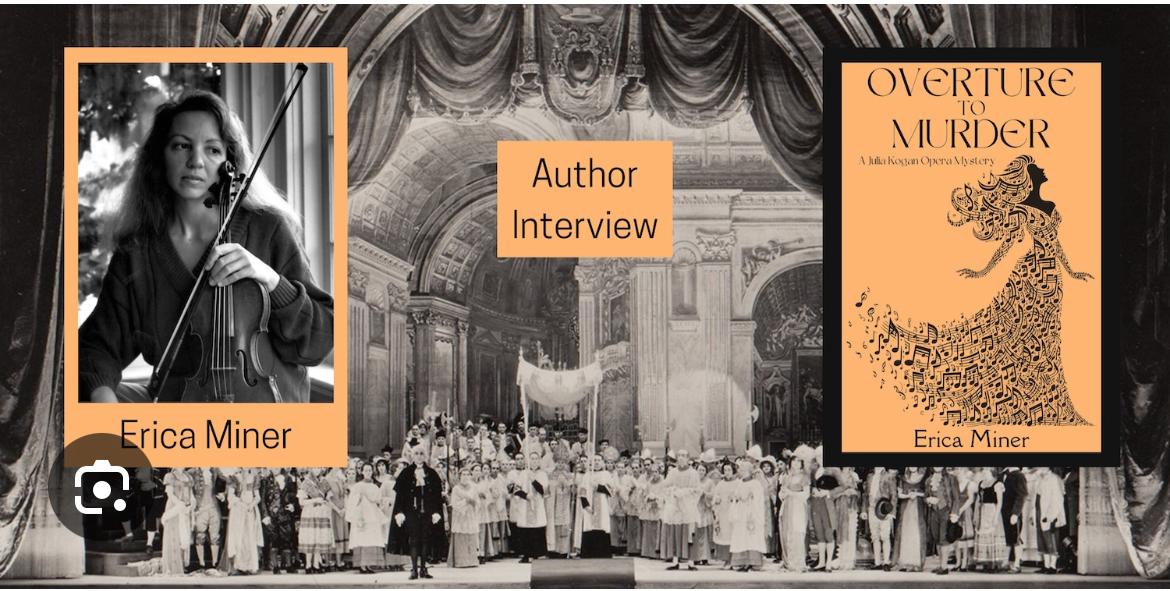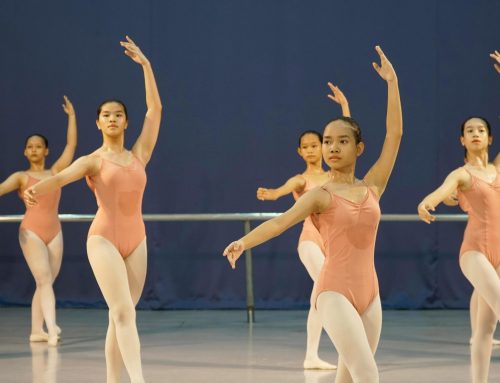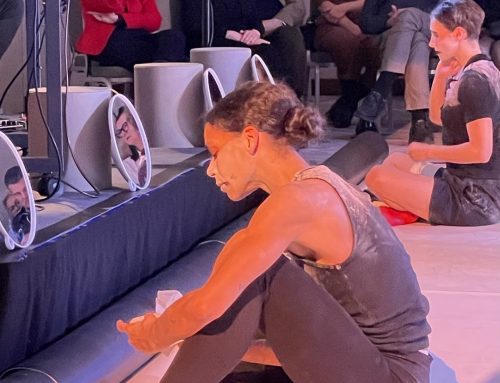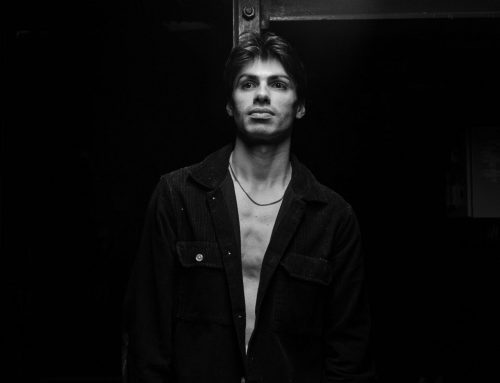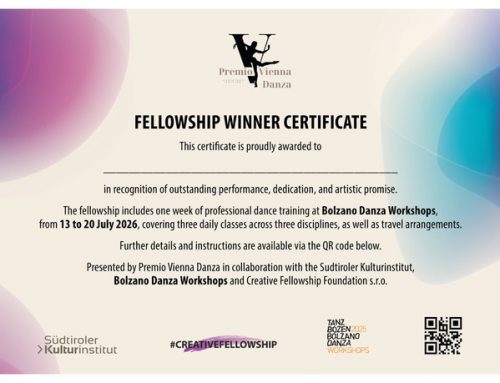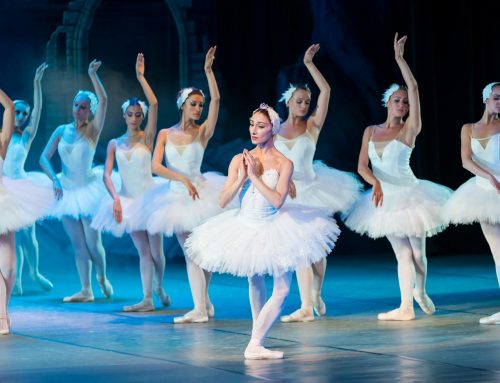In this #OperaBookClub special, we reconnect with bestselling author Erica Miner to explore Overture to Murder, the latest in her Julia Kogan Opera Mystery series. By weaving gripping mysteries with the allure of opera, Erica’s books provide an entertaining and accessible introduction to the art form—one captivating murder at a time.
CF: Welcome back, Erica! It’s been about a year since your last interview with us, following the release of your second book in the Julia Kogan Opera Mystery Series, Prelude to Murder. For anyone interested in revisiting that conversation, it’s available on our website at creativefellowship.org—just search for Erica Miner.
We’re excited to hear the latest updates on Julia Kogan’s adventures and what’s new in your life. Thank you for sharing your time with us!
Erica: It’s my pleasure.
CF: So, how was your year between the two book releases?
Erica: It was pretty crazy. Busy, but in a good way, because I’m still promoting the first two books, Aria for Murder and Prelude to Murder. And with the release of Overture to Murder, that’s three books in three years. I thought at first it was going to be easy. Not so much. But I’ve really been enjoying it, and I’ve loved connecting with people like you and all the people who have an interest in mysteries and opera. In Overture to Murder, I like to say the curtain comes down on murder. So, our young violinist and amateur sleuth, the intrepid Julia, is called upon to fill in for the concertmaster of the San Francisco Opera.
His name is Ben, and he’s been seriously injured in a hit-and-run accident, which Julia, with her suspicious nature, suspects might not have been an accident. The concertmaster is the first of the first violinists but also has responsibilities for the entire orchestra, the one everyone looks to for leadership, especially when the conductor has to deal with other things happening on the stage. For Julia to step in at the last moment in the “hot seat” is already a high-pressure situation.
Also, San Francisco Opera is the second most prestigious company in the US after the Metropolitan Opera. So, it’s quite a big deal for her, and she’s having one heck of a time keeping it all together. But Julia being Julia, she’s doing quite a bang-up job. Then one very prominent company member becomes the victim of a grisly murder, and as usual, Julia can’t resist becoming involved in the investigation. As in her previous sleuthing at the Metropolitan Opera and the Santa Fe Opera in Books One and Two, Julia once again discovers that at the San Francisco Opera these fiery artistic temperaments and egos combined with the danger lurking in the dark hallways and back stairways of the opera house provide a chilling backdrop for murder, and it goes on from there.
CF: Opera and mystery together are generally such an intriguing combination. What makes the opera world an ideal setting for a murder mystery?
Erica: I think opera and mystery were made for each other. When you think about it, the art form of opera is quite a murderous proposition. Opera stories are some of the bloodiest and most violent ever written. Combined with my own wicked imagination, an opera house definitely becomes the perfect environment for mischief and mayhem, the kind I’m writing about in my opera mysteries. In addition to the violent story going on on stage, there are any number of violent stories going on elsewhere.
Take the orchestra, for instance. Conflicts in the orchestra are inevitable because we spend so much time with each other. You wouldn’t believe what goes on between 100 neurotic musicians stuck together in a hole in the ground 7 days a week. There also are conflicts backstage, believe it or not: between the huge egos of opera singers, the stagehands, the management, literally everyone working in this high stakes, very pressured atmosphere makes for compelling material for murderous possibilities. In fact, after I wrote my first murder mystery at the Met where I was a violinist for 21 years, I realized that almost any opera house in the entire world could be the scene for these kinds of clashes and conflicts. So when one of my readers requested that I write a sequel, I realized how natural it was to duplicate these kinds of struggles and battles between people in the opera house no matter which opera house you chose for the setting. Between the dramatic violence on stage and all of the personal struggles backstage, an opera house and its workers add up to a goldmine of material to draw from in writing murder mysteries.
CF: Some of your readers might not be super familiar with the art form of opera itself. Did you face challenges incorporating opera’s technical aspects while keeping the mystery accessible to all readers?
Erica: That’s a good question. Initially especially, it was a huge challenge because I knew I had to appeal to a very broad base in an art form that is considered somewhat rarefied. So yes, it has been a huge challenge, but a welcome one.
The first novel, Aria for Murder, took place at the Met where I was a violinist for more than two decades. So I was able to replicate what I observed during that time and write it in a way that I hoped turned out to be both entertaining and informative. According to my readers, I accomplished that. There was enough real opera activity combined with my imaginative situations that would entice both mystery lovers and opera lovers. But those readers who started out knowing little, or in some cases nothing, about opera actually told me they were delighted to learn about this art form for the first time. Many of them said that reading these books inspired them to go see their first opera. And some of them even told me they found that to be a religious experience because opera, once you start getting to know it, you realize there’s nothing else quite like it in the world.
It was really gratifying to know that people got deeply involved in that world and became fascinated with it. When I was writing the second and third books, of course, the situation was different. Santa Fe and San Francisco were opera houses I had not worked at, but I was lucky enough to have had some close friends who did work with those companies, so they provided me great access to both theatres. A lot of people who read Prelude to Murder, which is about Santa Fe Opera, said that after they read the book they wanted to get on the next plane to Santa Fe because of my descriptions of not only the opera house, but the history and atmosphere of the city, which is the second oldest in the US. It sounded so intriguing. The Santa Fe Opera house is unique: an outdoor theater in the middle of the desert, surrounded by mysterious mountains ranges. It’s believed there are more ghosts in Santa Fe than any other city here. So I was fortunate, even though I had never been to Santa Fe before, my friends took me all around the opera house and introduced me to company members who gave me tours of their departments. All of this gave me inspiration for murderous mysterious goings on there that I could incorporate in the book. So, the possibilities were great. I learned about the technical aspects of performing there as well.
When it came to San Francisco, I did have a history with the company and had spent time there before I came up with the idea for Overture to Murder . A number of relatives and very close friends who either worked at San Francisco Opera and/or lived in the Bay Area, provided me access to the opera house and gave me tours of the theatre top to bottom. And I have to tell you the San Francisco Opera House where Overture to Murder takes place is not only the oldest of all of the three, including Santa Fe and the Met. It’s also the creepiest. That gave me a lot of inspiration for murderous happenings there.
I managed to combine the performing situations of real opera happening on stage with the mysterious atmosphere of the opera houses to create these possibilities for murder. All three of my books have anywhere between two and four of these bloody operas woven into the fabric of the mystery plots. You read about actual operas being performed during the story against the background of these murderous situations where people just seem to want to kill each other, and Julia can’t help but get involved. Eventually readers became tuned into this whole idea of, A) I’m learning about opera and it’s not so bad. And B) there are some pretty intriguing mysteries going on. It turned out to be a win-win situation. I’m really quite happy with how much readers are enjoying the books.
CF: It’s amazing to hear that you were able to convert so many people that were not familiar with opera into opera fans just by writing such an intriguing story.
Erica: I know! I’m delighted. That’s the genius of opera. It’s universal.
CF: The way you describe it, it really is hard to not get sucked into that world of opera.
Erica: Yes. Opera’s been around for over 400 years and I really believe in it. I believe it’s something that should live forever. So, I want to do my part in making people aware of the beauties of it, the fascination of it, by creating murder mysteries that take place in that world and giving readers an insider’s view of what goes on behind the scenes.
CF: You kind of touched upon the next question I was going to ask. How do you choose opera houses and operas for your novels?
Erica: Well, how much fun is that? There are opera houses all over the world. They’re all different. They all have fascinating histories and unique atmospheres, which in my own mind all add up to murder.
With the first book, of course, choosing the opera house was easy. It was the Met. I knew the place. I had been there for all those years but I also had been in close contact with some of the people I had worked with. You wouldn’t believe how quirky some of these people are: maddening and frustrating but also fascinating. They made for great fictional characters. I could combine character traits from one with another and turn that into somebody who’s really fun to write. That was my original inspiration. I found that as I was writing and as people were reading, everyone found the opera house stood on its own as a character in its own right. That made it really easy to choose that setting for a murder mystery in that milieu.
Then a reader persuaded me to write the sequel at Santa Fe Opera. I had always wanted to go to Santa Fe. In fact, since the Met is off in the summers and Santa Fe only performs in the summer, over the decades since Santa Fe was first opened in the 50s a lot of the orchestra people from the Met have been going there in the summers to play. I frankly found that 10 months of opera was plenty for me but once I went to Santa Fe and saw how beautiful it was there, I could understand that my colleagues would want to go out there and play opera, even after an entire season playing at the Met.
One of my very close friends, David Holloway, who used to be my neighbor in Manhattan, also was a singer at the Met while I was there. We had known each other for many years. Then he started performing at Santa Fe and became the director of the very famous Apprentice Program there. When I went out to Santa Fe, he provided me access to everything and everyone, tours of the entire place, not just the theater, but the huge campus there with all of its Southwest atmosphere of the mountains and the sagebrush, which makes for an atmosphere just ripe for mystery. Also, Santa Fe is known for having more ghosts than any other city in the US. There are ghost stories about the original founder, John Crosby, still hanging around after he’s been gone for 20 years or more. That legend made for a lot of interesting thought points that added intrigue to the story.
While I was in Santa Fe researching Prelude to Murder, one of my close friends from San Francisco Opera happened to be there. When he found out I was writing a mystery about Santa Fe Opera, he said, well, after you’re done with that one, would you be interested in setting another one at San Francisco opera? That was kind of a no-brainer. As I mentioned above, I have a long history with the company, having had friends and family members who have lived in the city and worked at San Francisco Opera. It just seemed like the perfect place to set another one of these mysteries, especially since San Francisco Opera has their own ghosts. It all adds up to a lot of wonderful opera and a lot of intriguing mystery. In the book I describe the city and opera house in great detail from Julia’s point of view because Julia, of course, being in a place that’s new to her, has to go and see all of the world famous San Francisco locations and landmarks. The result was Overture to Murder, the third in the series.
CF: Was it enjoyable to draw inspiration from real-life people and places for your story, despite the book’s dark themes?
Erica: It really was a lot of fun. And of course, a lot of hard work. But my imagination just doesn’t quit. It just keeps going.
CF: How do you stay in the mindset of Julia, the main character? Is she inspired by real-life people, or do you see part of yourself in her?
Erica: Initially, Julia was kind of my alter ego. I started out writing her as very similar to what it was like for me when I first started out at the Met. She’s starry-eyed about making her debut in the orchestra of the most famous opera company in the world at such a young age, in her early 20s. It’s like a dream come true. But when bad things start happening, she has to get over her naivete and starts to grow up very quickly. Especially when in the first book one of her closest colleagues is accused of a murder. So right away, she gets entangled in the investigation because she knows that her friend couldn’t have done it and it’s up to her to take the bull by the horns and save him. She tells the detectives on the case she knows enough about the opera house that she can find out things that they can’t. Eventually she convinces them, they’re on her side, and they all work together. As the series goes along she starts becoming more savvy and intuitive, a great amateur sleuth who can solve operatic murders the police can’t because she has this insider knowledge and insider intuition that she’s acquired year after year performing at the opera. So the series takes place over a number of years.
After a while I discovered that, as a character Julia took off on her own. Like she was telling me, okay, nice knowing you. Bye bye. I’m my own character now. And though initially she had similarities to me, eventually she became so brave and so willing to put herself in danger that even if I tried I could never be that brave. That is one of the beauties of writing fiction. If you create a character who has similarities to yourself, you also can give them characteristics you only wish that you had. So I place her in situations where she has to use her native intelligence to save her own life and by virtue of that as the series goes on, she becomes smarter and more knowledgeable.
CF: Julia seem to be a very rich character, very multi-dimensional and that makes the story incredibly interesting. How do you feel about her teaching music to her daughter Rebecca. What do you think about the idea of parents coaching their children in these artistic disciplines, especially compared to professional instruction?
Erica: A lot of that was based on my own experience. When you think about it, this tradition of parents teaching music to their children goes all the way back to Mozart and even before. Mozart’s father was absolutely key in young Wolfgang’s developing his genius. When I was a kid, my father was my first violin teacher. From that experience with my own father I thought about basing the whole idea off of, how was it for me with my dad? And how is it going to be with Julia and her daughter? But I think, and it took me a while to realize this, if you’re teaching your own child, you tend to be tougher on them than an outside person would because you have a personal investment. You want them to be just the very best. I realized that was why my father was terribly hard on me because he believed that I could be a truly great violinist. But when you’re a kid that makes it really tough. You get into situations where you end up in tears.
All of that experience formed a great basis for writing about Julia teaching Rebecca to play the violin. Of course, Rebecca is only five years old, which is younger than I was when I started, but it definitely is a loaded situation, double edged kind of circumstance. Julia is ambivalent. She starts out at the very beginning thinking, was she doing the right thing? Should she have actually sent Rebecca to a different teacher, rather than to do it herself?
So it’s a double edged sword, but it’s always fascinating. And at some point with a kid who can be rebellious, as I was, and as Rebecca is, you kind of put your foot down and say, okay, I want to do it the way I want to do it. And that ends up with a lot of conflict. And conflict makes for great fiction. It’s a situation fraught with emotion and reflects my own experience. I knew what I was doing when I was writing it, but wow, it really brought back a lot of memories, good and bad.
CF: Were there any secondary characters that were particularly fun to write or whose development you especially enjoyed creating?
Erica: I like to joke that one of the reasons I so enjoy writing these opera mysteries is that I get to kill off all the people who made my life miserable. My favorite thing about writing is to create the characters. And as I mentioned before, I based a lot of them on traits that I observed from different people that I would take from one person and then another and combine them together to create a lively mix of characters.
In the first book, Aria for Murder, I had so much fun writing Sidney, Julia’s very close colleague and another violinist in the orchestra. The two of them. more often than not, sit together in the first violin section. They get to know each other almost better than family. He’s maddening but lovable and full of life, which made him a lot of fun to write.
Katie, Julia’s best friend both in and out of the orchestra, is another key character. They start off as roommates, having gone to Juilliard together, and share a very close bond. Katie is Julia’s complete opposite—while Julia is serious and focused, Katie is carefree and lighthearted. But they’re each other’s “person,” as we say throughout the series. Katie is someone Julia can lean on. She supports her, but she also tries to give her reality checks and say, “Hey, Julia, don’t you think this is a bit dangerous, you know, back off?“
So they have this wonderful kind of bouncing-things-off-of-each-other relationship. Katie is a real live wire. She doesn’t care what other people think about her. Another characteristic I wish I had. I had a lot of fun writing her as well.
CF: There are a lot of the rivalries in the story and tensions are portrayed very vividly. Were there kind of real life experiences that inspired these dynamics?
Erica: Definitely. While I was there, because of the volatile atmosphere of an opera house and of all the people working there and being at odds with each other so much of the time, there definitely were some pretty shocking things that happened. For instance, one day in the middle of a performance that was being broadcast all over the country, some guy in the audience decided to commit suicide by leaping off the balcony. I mean, you can’t make this stuff up! And there are other astonishingly disturbing things that are even worse, that actually happened onstage in the middle of a performance. A lot of these dynamics were based on my own experiences of working with all these quirky people in these sometimes very dangerous situations. This is all really inspiring when I’m trying to come up with shocking and murderous happenings.
Another example: the sets. You’d almost think they were booby trapped; things falling on people, people falling over them in the middle of performances. I do whole lectures on this stuff. But it’s definitely a rich background to create tense situations fictionally. And as I mentioned with the Met Orchestra, with all these neurotic musicians thrown together in a hole in the ground, no light and no air, seven days a week, days, nights and weekends, you see more of these people than you see your own families. Sooner or later you can feel like you want to kill someone.
So that’s kind of how it all begins. You start with what you know, which for me is the orchestra. And then because I spent so many hours, day after day, year after year in the opera house, I had a chance to even stand in the wings and watch things that were going on onstage and observe how these people interacted with each other and how they were so in conflict because it’s such a high pressure situation, so intense. Almost all the experiences I had became grist for my writing mill.
CF: The themes of rivalry and betrayal, especially connected to the ambitions of the characters are central in this novel. Do you feel those themes are connected to the real life world of opera?
Erica: They’re not just connected. They’re intertwined more closely than you can imagine. Ambition is at the core of an opera company, especially one as prestigious as the Met. When you think about it, from sopranos to violinists to stagehands to management, any opera house is absolutely rife with jealousies and rivalries and backstabbing. Witness the recent cause célèbre, which I’m sure a lot of your listeners may have heard about and which I think happened in a European opera house. A very famous soprano was singing with a tenor, who so blew away the audience that they erupted into spontaneous applause after his aria. This soprano interrupted the applause and complained—loudly—that it shouldn’t be happening, that it was interrupting the flow of the opera, that it was unprofessional. All of these things which really made her look very bad. She was protesting out loud onstage. I imagine she was jealous of his getting all the attention. This actually happened. I’m not making this up. It was all over the news in the music world.
When you have egos this enormous, in my opinion the most enormous ones on the planet, you’re going to have a situation that’s intriguing to reconstruct or replicate in a fictional kind of story. And when things get out of hand, they can become murderous. So all of these things, the experiences that I’ve had or the ones that I’ve read about or heard about from other opera singers of their opera friends. They all reflect the true experiences that can make an opera house such a dangerous and fascinatingly murderous place.
CF: While trying to incorporate all these things into the story, did you know the ending before you started writing, or did it develop as you went along?
Erica: One of the things I’ve learned as a writer of mysteries is that you have to know your ending before you begin. Also, it’s best to know who the villain or the antagonist is going to be because that is the person that really drives the drama. So I have to know all that before I even begin.
I like to say that for me the mystery genre is the most difficult to write. I think of a mystery as a jigsaw puzzle. All the pieces have to fit together perfectly. Otherwise, the puzzle will be askew. In order to do that in your writing, you have to first of all know what your ending is going to be. Once I’ve determined that, I usually put together maybe six or seven of the main scenes, the main plot points as a basic blueprint. But I always start with the ending. After that I write a detailed outline, which takes me a number of months, to make sure I have a coherent but believable story. Another thing that makes the mystery genre so difficult to write is the fine line between whether or not this story realistically can happen. You have to make it believable enough so that the people reading it will stick with the story and not say, oh, this can’t happen, but still leave room for your creativity. I don’t want anybody scratching their heads, reading it. Bottom line, I have to know the ending first, but I have to know the whole story before I start writing the actual book. Of course as I go along, a lot of changes happen. But at least I know that the major plot points and the major characters are going to lead me toward the inevitable ending.
CF: If Overture to Murder were to be adapted into a movie or series, would you have any specific opera pieces you would like to include in the soundtrack?
Erica: I’ve written 11 scripts. I got close to having the first one, the Met Opera mystery, come to fruition. But you know what they say in Hollywood; „There are no rules, and they’re strictly enforced.“
Hollywood is a tough nut to crack. But if it should happen and if somebody can find me a director who really understands opera, it would be easy to choose music for Overture to Murder because the entire mystery revolves around Wagner’s very famous four-opera cycle, The Ring of the Nibelungen. Each of those four operas has at least one murder if not more. So it seemed like the perfect solution as to what should I base Overture to Murder on, as far as the operatic mystery. This automatically opens possibilities for a rich variety of music to be used in the soundtrack. A lot of this music is universally familiar and relatable; some of the greatest, most admired and recognizable music ever written.
For instance, everybody’s heard the Ride of the Valkyries, Siegfried’s Funeral Music, the Entrance of the gods into Valhalla. All of this music has been used in films over the decades from the very beginning of the 20th century. There was a movie called the Birth of the Nation that used this same music. Apocalypse Now used the Ride of the Valkyries. The movie Excalibur, even the movie Blues Brothers used music from Wagner’s Ring. So any or all of Wagner’s Ring music would make an incredible background and amazing soundtrack for Overture to Murder. So yes, that wouldn’t be a problem. I just need to find a director who is passionate about setting a mystery in an opera house. Not so bad when you think about it.
CF: Yeah, It’s a great premise. I can’t imagine it would be that hard to sell that idea. Honestly, it sounds incredibly intriguing!
Erica: Thank you. I hope someone in the film industry knows somebody who could get me to that point and that we could all have so much fun creating the project.
CF: I would like to thank you again for your time. And I’d like to highly encourage anyone listening to check out the series, starting with Aria for Murder, and then Prelude to Murder and Overture to Murder. Is there anything that you would like to add or talk about before we finish?
Erica: I really appreciate your taking the time to chat with me. This has been a lot of fun. And when the recording of our interview is posted, I’d love to know what your listeners think of everything we’ve discussed, including the characters in Overture to Murder and its setting and plot revolving around Wagners Ring. Any impressions that they have. I always love hearing from people with comments and feedback about any of the books in the series, of course, but especially the Overture to Murder, since it is the newest, latest one. Thank you!

